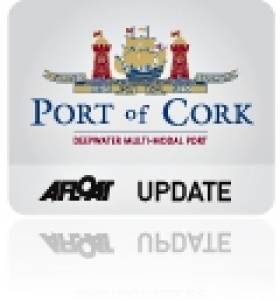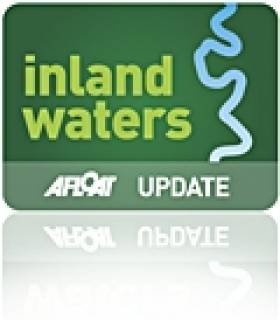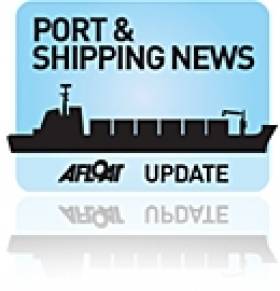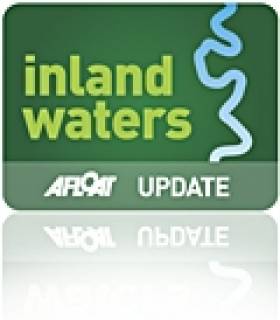Port of Cork Information
The Port of Cork is the key seaport in the south of Ireland and is one of only two Irish ports which service the requirements of all six shipping modes i.e., Lift-on Lift-off, Roll-on Roll-off, Liquid Bulk, Dry Bulk, Break Bulk and Cruise. Due to its favourable location on the south coast of Ireland and its modern deep-water facilities, the Port of Cork is ideally positioned for additional European trading as well as for yet unexploited direct deep-sea shipping services.
The Port of Cork is investing €80 million in a container terminal development in Ringaskiddy. The Cork Container Terminal will initially offer a 360-metre quay with 13-metre depth alongside and will enable larger ships to berth in the port. The development also includes the construction of a 13.5-hectare terminal and associated buildings as well as two ship to shore gantry cranes and container handling equipment.
The development of new container handling facilities at Ringaskiddy was identified in the Port of Cork’s Strategic Development Plan in 2010. It will accommodate current and future container shipping which can be serviced by modern and efficient cargo handling equipment with innovative terminal operating and vehicle booking systems. The Port of Cork anticipates that Cork Container Terminal will be operational in 2020.
The Port of Cork is the key seaport in the south of Ireland and is one of just two Irish ports which service the requirements of all shipping modes.
The Port of Cork also controls Bantry Bay Port Company and employs 150 people across all locations.
A European Designated Core Port and a Tier 1 Port of National Significance, Port of Cork’s reputation for quality service, including prompt and efficient vessel turnaround as well as the company’s investment in future growth, ensures its position as a vital link in the global supply chain.
The port has made impressive strides in recent decades, most recently with the construction of the new €80m Cork Container Terminal in Ringaskiddy which will facilitate the natural progression of the move from a river port to a deepwater port in order to future proof the Port
of Cork. This state-of-the-art terminal which will open in 2020 will be capable of berthing the largest container ships currently calling to Ireland.
The Port of Cork Company is a commercial semi-state company responsible for the commercial running of the harbour as well as responsibility for navigation and berthage in the port. The Port is the main port serving the South of Ireland, County Cork and Cork City.
Types of Shipping Using Port of Cork
The Port offers all six shipping modes from Lift-on Lift-off, Roll-on Roll-off, Liquid Bulk, Dry Bulk, Break Bulk and Cruise liner traffic.
Port of Cork Growth
The port has made impressive strides in recent decades. Since 2000, the Port of Cork has invested €72 million in improving Port infrastructure and facilities. Due to its favourable location and its modern deepwater facilities, the Port is ideally positioned for additional European trading as well as for yet unexploited direct deep-sea shipping services. A well-developed road infrastructure eases the flow of traffic from and to the port. The Port of Cork’s growing reputation for quality service, including prompt and efficient vessel turnaround, ensures its position as a vital link in the global supply chain. The Port of Cork Company turnover in 2018 amounted to €35.4 million, an increase of €3.9 million from €31.5 million in 2017. The combined traffic of both the Ports of Cork and Bantry increased to 10.66 million tonnes in 2018 up from 10.3 million tonnes in 2017.
History of Port of Cork
Famous at the last port of call of the Titanic, these medieval navigation and port facilities of the city and harbour were historically managed by the Cork Harbour Commissioners. Founded in 1814, the Cork Harbour Commissioners moved to the Custom House in 1904. Following the implementation of the 1996 Harbours Act, by March 1997 all assets of the Commissioners were transferred to the Port of Cork Company.
Commercial Traffic at Port of Cork
Vessels up to 90,000 tonnes deadweight (DWT) are capable of coming through entrance to Cork Harbour. As the shipping channels get shallower the farther inland one travels, access becomes constricted, and only vessels up to 60,000 DWT can sail above Cobh. The Port of Cork provides pilotage and towage facilities for vessels entering Cork Harbour. All vessels accessing the quays in Cork City must be piloted and all vessels exceeding 130 metres in length must be piloted once they pass within 2.5 nautical miles (4.6 km) of the harbour entrance.
Berthing Facilities in Cork Harbour
The Port of Cork has berthing facilities at Cork City, Tivoli, Cobh and Ringaskiddy. The facilities in Cork City are primarily used for grain and oil transport. Tivoli provides container handling, facilities for oil, livestock and ore and a roll on-roll off (Ro-Ro) ramp. Prior to the opening of Ringaskiddy Ferry Port, car ferries sailed from here; now, the Ro-Ro ramp is used by companies importing cars into Ireland. In addition to the ferry terminal, Ringaskiddy has a deep water port.
Port of Cork Development Plans
2020 will be a significant year for the Port of Cork as it prepares to complete and open the €86 million Cork Container Terminal development in Ringaskiddy.
Once operational the new terminal will enable the port to handle up to 450,000 TEU per annum. Port of Cork already possess significant natural depth in Cork harbour, and the work in Ringaskiddy Port will enable the Port of Cork to accommodate vessels of 5500 to 6000 TEU, which will provide a great deal of additional potential for increasing container traffic.
It follows a previous plan hatched in 2006 as the port operated at full capacity the Port drew up plans for a new container facility at Ringaskiddy. This was the subject of major objections and after an Oral Planning Hearing was held in 2008 the Irish planning board Bord Pleanala rejected the plan due to inadequate rail and road links at the location.
Further notable sustainability projects also include:
- The Port of Cork have invested in 2 x STS cranes – Type single lift, Model P (148) L, (WS) Super. These cranes contain the most modern and energy-efficient control and monitoring systems currently available on the market and include an LED floodlight system equipped with software to facilitate remote diagnostics, a Crane Management System (CMS) and an energy chain supply on both cranes replacing the previous preferred festoon cabling installation.
- The Port of Cork has installed High Mast Lighting Voltage Control Units at its two main cargo handling locations – Tivoli Industrial & Dock Estate and Ringaskiddy Deep-water & Ferry Terminals. This investment has led to more efficient energy use and reduced risk of light pollution. The lights can also be controlled remotely.
- The Port of Cork’s largest electrical consumer at Tivoli Container Terminal is the handling and storage of refrigerated containers. Local data loggers were used to assess energy consumption. This provided timely intervention regarding Power Factor Correction Bank efficiency on our STS (Ship to Shore) Cranes and Substations, allowing for reduced mains demand and reducing wattless energy losses along with excess charges. The information gathered has helped us to design and build a reefer storage facility with energy management and remote monitoring included.
Bantry Port
In 2017 Bantry Bay Port Company completed a significant investment of €8.5 million in the Bantry Inner Harbour development. The development consisted of a leisure marina, widening of the town pier, dredging of the inner harbour and creation of a foreshore amenity space.
Port of Cork Cruise Liner Traffic
2019 was a record cruise season for the Port of Cork with 100 cruise liners visiting. In total over 243,000 passengers and crew visited the region with many passengers visiting Cork for the first time.
Also in 2019, the Port of Cork's Cruise line berth in Cobh was recognised as one of the best cruise destinations in the world, winning in the Top-Rated British Isles & Western Europe Cruise Destination category.
There has been an increase in cruise ship visits to Cork Harbour in the early 21st century, with 53 such ships visiting the port in 2011, increasing to approximately 100 cruise ship visits by 2019.
These cruise ships berth at the Port of Cork's deepwater quay in Cobh, which is Ireland's only dedicated berth for cruise ships.
Passenger Ferries
Operating since the late 1970s, Brittany Ferries runs a ferry service to Roscoff in France. This operates between April and November from the Ro-Ro facilities at Ringaskiddy. Previous ferry services ran to Swansea in Wales and Santander in Spain. The former, the Swansea Cork ferry, ran initially between 1987 and 2006 and also briefly between 2010 and 2012.
The latter, a Brittany Ferries Cork–Santander service, started in 2018 but was cancelled in early 2020.
Marine Leisure
The Port of Cork has a strategy that aims to promote the harbour also as a leisure amenity. Cork’s superb natural harbour is a great place to enjoy all types of marine leisure pursuits. With lots of sailing and rowing clubs dotted throughout the harbour, excellent fishing and picturesque harbour-side paths for walking, running or cycling, there is something for everyone to enjoy in and around Cork harbour. The Port is actively involved with the promotion of Cork Harbour's annual Festival. The oldest sailing club in the world, founded in 1720, is the Royal Cork Yacht Club is located at Crosshaven in the harbour, proof positive, says the Port, that the people of Cork, and its visitors, have been enjoying this vast natural leisure resource for centuries.
Port of Cork Executives
- Chairman: John Mullins
- Chief Executive: Brendan Keating
- Secretary/Chief Finance Officer: Donal Crowley
- Harbour Master and Chief Operations Officer: Capt. Paul O'Regan
- Port Engineering Manager: Henry Kingston
- Chief Commercial Officer: Conor Mowlds
- Head of Human Resources: Peter O'Shaughnessy

































































